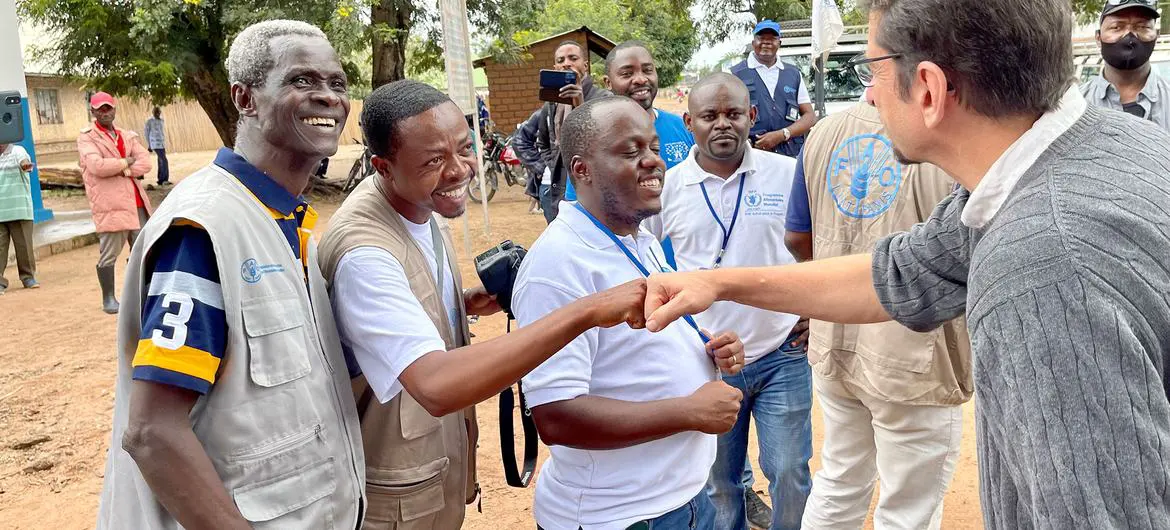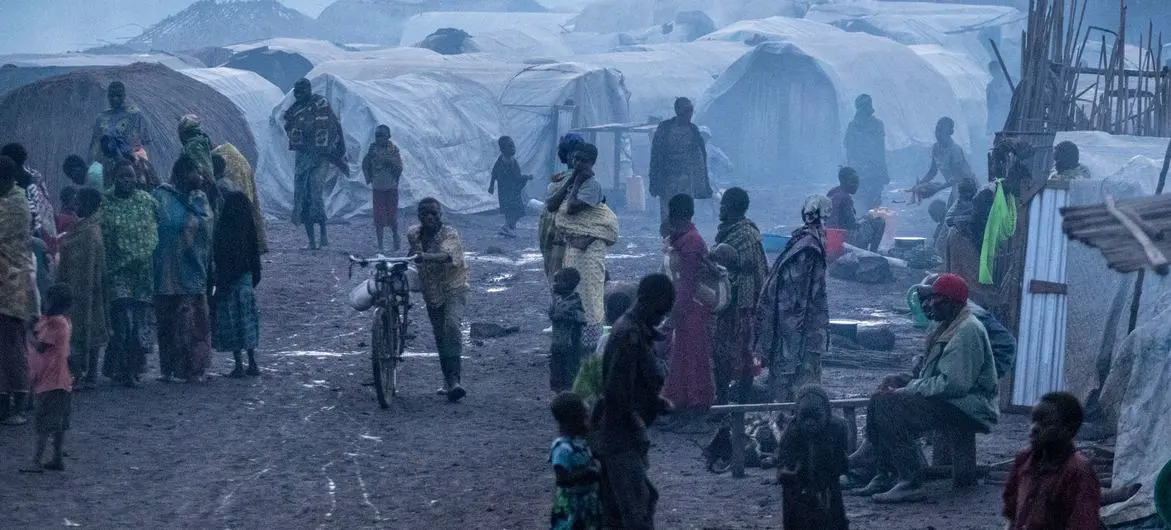‘Common game plan’ needed to address DR Congo displacement crisis: A Resident Coordinator blog | UN News
Over the last 10 years, the number of people around the world who have been forced to flee their homes and become displaced in their own countries, has more than doubled. In the Democratic Republic of Congo (DRC), the increase in internally displaced persons (IDPs) has been particularly stark, as Resident Coordinator Bruno Lemarquis, the senior UN official there, explains.
Even during the current period of crisis and escalating violence, I’ve come to see just how important it is to plant the seeds of development and address the underlying vulnerabilities which have uprooted so many families across the country in the first place.
During several visits to Tanganyika province, which has high levels of IDPs, I was struck by just how many different factors - both the symptoms and drivers of displacement - are at play, including high levels of food insecurity, the difficulty to access services, competition over the region’s wealth of natural resources, and escalating violence against civilians. ]
I spoke with many IDPs during these visits to Tanganyika province, each of them sharing their own story of displacement and explaining the tough conditions they currently live under. Here are some of the things they told me.
‘The thing we want most in the world is to return home, to cultivate our land, but the security conditions are not there yet – and so we have to continue to live in these difficult conditions.’
‘We want peace to return because only lasting peace can allow us to return to our villages.’
Finding a lasting solution to forced displacement in this part of the country clearly requires the involvement of many different actors – peacebuilders, humanitarians, development partners and local government – all working together towards one common game plan and collective outcomes.
Development can have an important multiplier effect, helping to strengthen local actors and systems, boost local economic development and support a return of State authority.
Working with local organizations, including NGOs and civil society organizations is key. We must continue to walk the talk on localization
In eastern DRC, a region which has over relied on humanitarian actors for the provision of social services and public infrastructure in the past, empowering local state actors is a key step to building more sustainable solutions to displacement, and one which we at the UN country team will continue to prioritize in the years ahead.

A hopeful road ahead
The UN Secretary-General’s Action Agenda on Internal Displacement, marks an important step in this direction.
Building on the recommendations from the High-Level Panel on Internal Displacement at the end of 2019, the Action Agenda sets out a series of commitments for the UN system to step up its engagement and build longer lasting solutions to internal displacement, by placing prevention, protection and local partnerships at the centre.
The challenges ahead for the DRC are significant, but I am hopeful that the new Action Agenda, alongside the nexus-based approach, will ensure that displaced communities are further protected, local authorities strengthened, and development actors brought to scale”.







